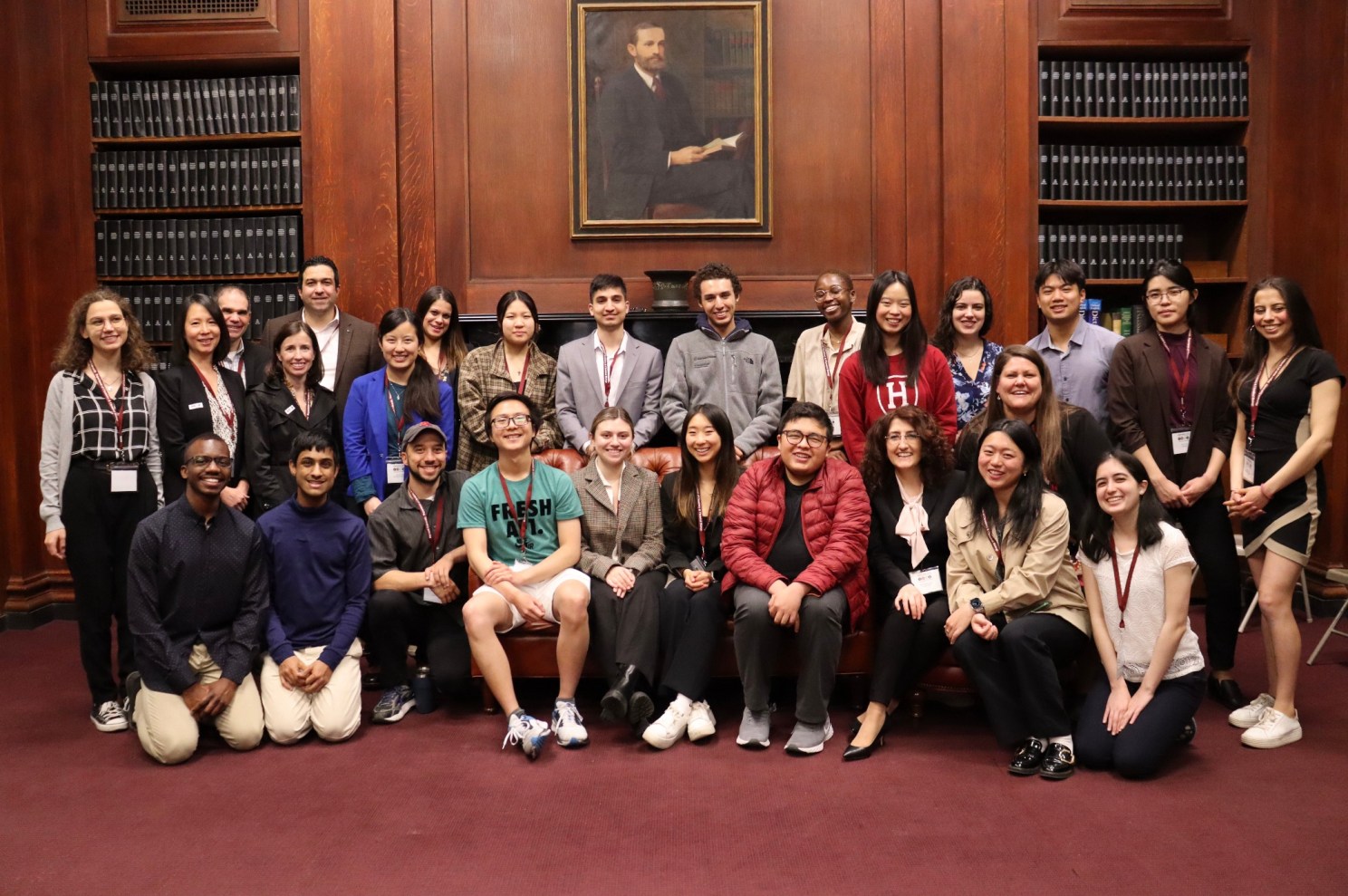The Harvard Department of Chemistry and Chemical Biology held its first-ever undergraduate research symposium, showcasing the innovative research projects of some of the brightest young minds in the field.
The May 2 symposium was attended by approximately 150 people, including faculty members, graduate students, undergraduates, and staff members from across the University. The event featured a keynote address, oral presentations, a round table discussion panel, and poster presentations that covered a diverse range of topics including cutting edge research practices originated from quantum chemistry, chemical biology, inorganic chemistry, archaeology, and chemistry in literature.
“Our courses are preparing the next generation of chemists, but research is the way our faculty are truly training scientists to find and create new knowledge,” said Deana Reardon, executive director of CCB. “Having a day focused on that research aspect and celebrating the incredible accomplishments of our youngest trainees supports our mission of making research more accessible to all our students.”
As the keynote speaker, Professor Daniel Nocera, Patterson Rockwood Professor of Energy, discussed the importance of perseverance in driving scientific innovation and encouraged students to pursue their interests without fear of failure.
“Science speaks to you, you have to listen very carefully,” Nocera said. “Never think an experiment has failed, you can fail as a listener, but the experiment doesn’t fail. When you can’t understand some science, that’s where you should be digging in.”
The event also provided an opportunity for students to connect with their peers and alumni, and to learn about the research being conducted in other areas of the department. In addition, the presentations allowed students to practice communicating about their research subjects and processes.
In response to feedback from its last climate survey and student-led groups, the department planned the symposium as an opportunity to enhance the experiences of undergraduate concentrators by providing a platform to showcase their work.
The symposium was a priority for CCB’s faculty and received funding from Dean Claudine Gay via the FAS Community Renewal Fund. The planning and management of the symposium was led by a volunteer planning committee that collected abstracts for oral and poster sessions. Committee members included Ellen S. Deng, Ella Miller, Jorge Garcia Ponce, Eion Siytiu Chua, Benjamin Yeesch Tang, Josh Cox, Stefanie Hirst, Dilek Dogutan Kiper, and Deana Reardon.
“This symposium was designed to highlight our students’ problem-solving capacity, critical thinking and experimental design skills,” said Dilek Dogutan, principal research scientist, CCB lecturer and Symposium Planning Committee member. “Our undergraduate students have shown that under the supervision of the faculty/research directors they can execute challenging science problems, create new knowledge, write senior theses, and publish peer reviewed manuscripts.”
In total, 18 undergraduate students participated in the oral presentations, and 20 undergraduates presented posters of their research. The top presenters received flowers, trophies, and gift certificates worth $500. The award winners and photos are available on the CCB website.
Going forward, the department will make this an annual symposium and seeks to broaden the scope of labs and departments participating.





